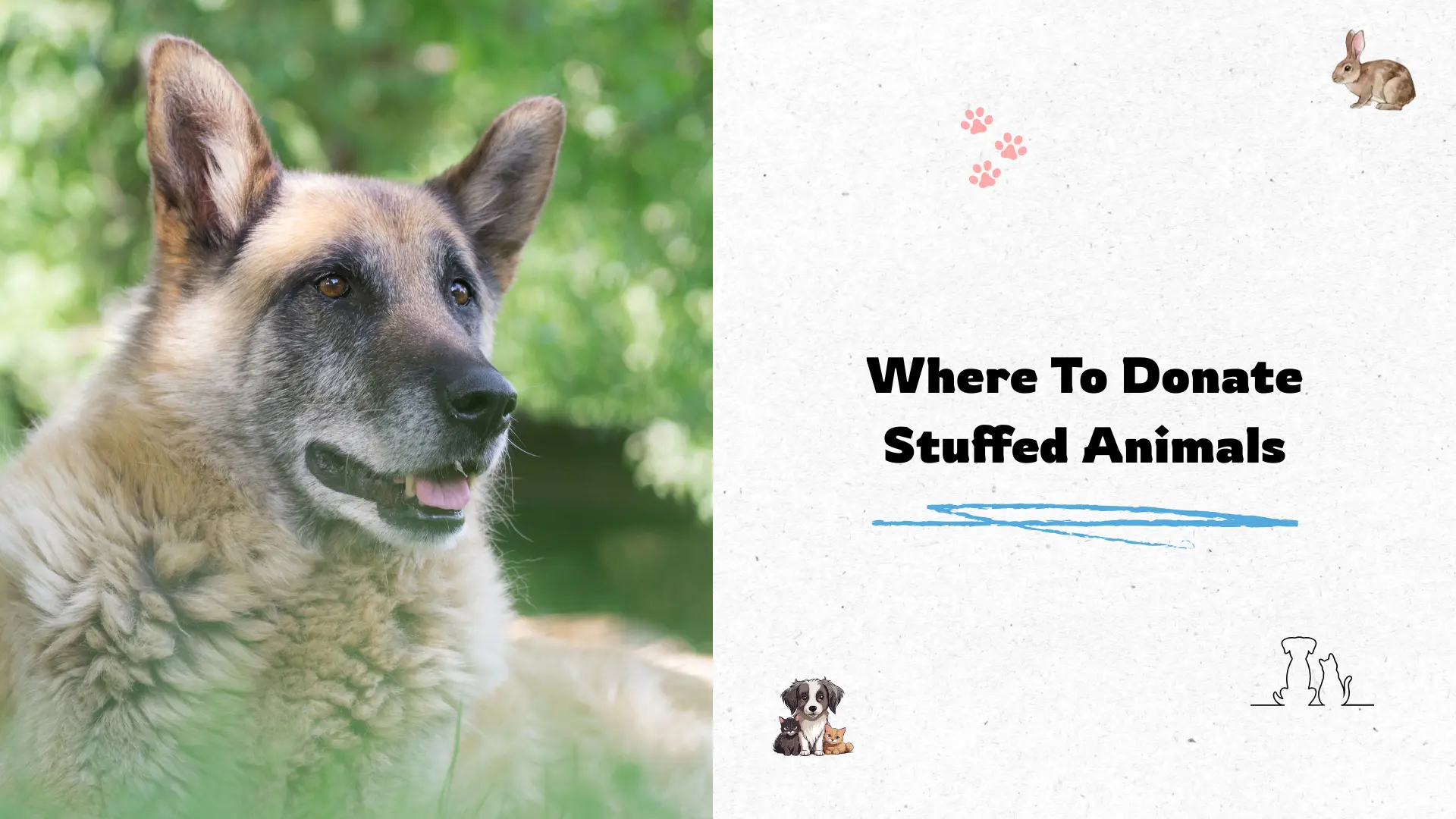Where To Donate Stuffed Animals

Stuffed animals often hold sentimental value, but as children grow up or households declutter, these beloved plush toys may no longer serve their original purpose. Instead of throwing them away, donating stuffed animals allows them to bring comfort and joy to others who need them the most. Many organizations and communities gladly accept these donations to support children, families, and even pets in need.
This guide provides a detailed overview of the best places to donate stuffed animals, essential considerations before donating, and how to prepare your plush toys for donation.
Benefits of Donating Stuffed Animals
Donating stuffed animals is more than just an act of decluttering—it is a way to give back to the community and make a meaningful difference. Here are some key benefits:
1. Providing Comfort to Children
Stuffed animals offer emotional support and a sense of security, especially for children going through challenging situations such as illness, homelessness, or trauma. Many children form deep attachments to stuffed animals, making them a valuable source of comfort in difficult times.
2. Supporting Families in Need
Many families struggle to provide toys and comfort items for their children due to financial hardships. Donating stuffed animals to shelters, foster care agencies, and charities helps relieve some of this burden, ensuring that children receive toys they might not otherwise have.
3. Reducing Waste and Promoting Sustainability
Instead of contributing to landfill waste, donating gently used stuffed animals allows them to be repurposed and enjoyed by others. This practice supports sustainability efforts and encourages responsible consumption.
Top Organizations Accepting Stuffed Animal Donations
There are many organizations that accept stuffed animal donations, each serving different communities and causes. Here are some of the best places to consider:
1. Stuffed Animals For Emergencies (SAFE)
SAFE is a volunteer-based nonprofit organization that collects stuffed animals, cleans them, and distributes them to children facing crises. These donations help children in emergency situations, such as those affected by natural disasters, abuse, or homelessness.
2. Local Children’s Hospitals
Hospitals often welcome donations of new stuffed animals to provide comfort to young patients undergoing medical treatments. Due to strict hygiene standards, most hospitals only accept new toys, ensuring that the items are safe for children with weakened immune systems.
3. Shelters for Homeless Families
Homeless shelters provide refuge for families in difficult situations, and many of them accept stuffed animals to help comfort children. These toys can be a source of stability and reassurance for children adjusting to uncertain living conditions.
4. Orphanages and Foster Care Agencies
Children in orphanages and foster care systems often have limited personal belongings. A donated stuffed animal can become a cherished companion, offering emotional support and a sense of belonging. Many foster care agencies accept toy donations to distribute to children in their care.
5. Local Charities and Thrift Stores
Organizations such as Goodwill and The Salvation Army accept gently used stuffed animals to resell in their stores or distribute to those in need. The proceeds from thrift store sales help fund community programs, including job training and support services.
6. Animal Shelters and Pet Adoption Agencies
Animal shelters often accept stuffed animals to provide comfort to pets waiting for adoption. These plush toys can help reduce stress and anxiety for animals in shelters, making them feel more at ease in their temporary environment.
7. Toy Drives and Holiday Charities
Many organizations conduct toy drives during the holiday season to collect new toys for children in need. Programs like Toys for Tots accept donations of stuffed animals to distribute as holiday gifts, bringing joy to children who might otherwise go without presents.
8. Schools and Daycares
Some schools and daycare centers accept stuffed animal donations to use in their classrooms or as comfort items for children in distress. These toys can help create a warm and welcoming environment for young learners.
Considerations Before Donating
Before donating stuffed animals, it’s important to ensure that your donation is appropriate and helpful. Here are some key factors to consider:
1. Condition of the Stuffed Animals
Most organizations require that stuffed animals be clean and in good condition. Items with stains, tears, or missing parts are generally not accepted, as they may not be safe or suitable for children.
2. Safety and Hygiene Standards
If donating to hospitals or organizations serving young children, ensure that the stuffed animals meet current safety standards. Some charities only accept new items to prevent the spread of germs and allergens.
3. Donation Guidelines of the Organization
Different organizations have different donation policies. Before donating, it’s best to contact the organization to confirm their current needs, restrictions, and drop-off locations.
How to Prepare Stuffed Animals for Donation
To make sure your donation is well-received, follow these steps to properly prepare stuffed animals before donating them:
1. Clean the Stuffed Animals
Wash the stuffed animals according to their care instructions. Most plush toys can be cleaned in a washing machine using a gentle cycle and mild detergent. Allow them to fully dry before packaging them for donation.
2. Inspect for Damage
Check the stuffed animals for any rips, missing parts, or loose buttons. Repair minor damages if possible, or consider recycling severely damaged items instead of donating them.
3. Package Properly
Place the stuffed animals in a clean plastic bag or sealed box to keep them safe from dust and dirt during transportation. Some organizations may have specific packaging requirements, so be sure to check before donating.
4. Arrange Drop-Off or Shipping
Find out if the organization prefers in-person drop-offs or mailed donations. Some charities have designated donation centers, while others may accept shipped donations if you cover the postage.
Conclusion
Donating stuffed animals is a meaningful way to bring comfort and happiness to others while reducing waste. Whether you choose to donate to hospitals, shelters, foster care agencies, or thrift stores, your contribution can make a lasting impact on a child or pet in need.
Before donating, always check the organization’s guidelines, ensure that your stuffed animals are clean and in good condition, and package them properly for delivery. By taking these steps, you can ensure that your donation is both thoughtful and beneficial.
If you have stuffed animals you no longer need, consider donating them today—your act of kindness can make a world of difference.





